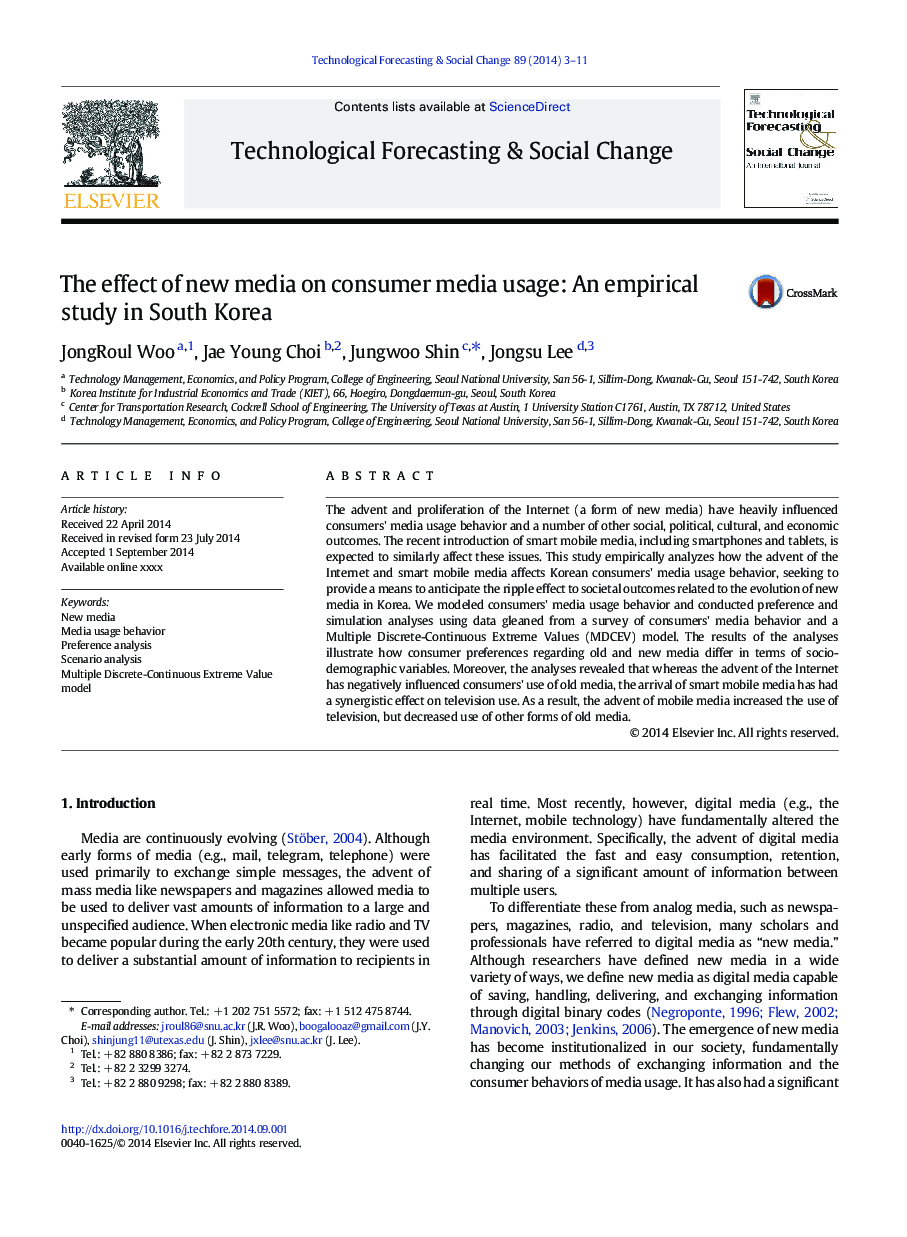| Article ID | Journal | Published Year | Pages | File Type |
|---|---|---|---|---|
| 7257011 | Technological Forecasting and Social Change | 2014 | 9 Pages |
Abstract
The advent and proliferation of the Internet (a form of new media) have heavily influenced consumers' media usage behavior and a number of other social, political, cultural, and economic outcomes. The recent introduction of smart mobile media, including smartphones and tablets, is expected to similarly affect these issues. This study empirically analyzes how the advent of the Internet and smart mobile media affects Korean consumers' media usage behavior, seeking to provide a means to anticipate the ripple effect to societal outcomes related to the evolution of new media in Korea. We modeled consumers' media usage behavior and conducted preference and simulation analyses using data gleaned from a survey of consumers' media behavior and a Multiple Discrete-Continuous Extreme Values (MDCEV) model. The results of the analyses illustrate how consumer preferences regarding old and new media differ in terms of socio-demographic variables. Moreover, the analyses revealed that whereas the advent of the Internet has negatively influenced consumers' use of old media, the arrival of smart mobile media has had a synergistic effect on television use. As a result, the advent of mobile media increased the use of television, but decreased use of other forms of old media.
Related Topics
Social Sciences and Humanities
Business, Management and Accounting
Business and International Management
Authors
JongRoul Woo, Jae Young Choi, Jungwoo Shin, Jongsu Lee,
